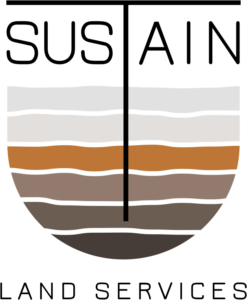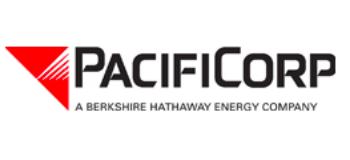Laboratory Assistant Intern (Chemistry)
About This Job
Connect to a career at City Utilities! CU has been connecting our community to the services they need for every day life since 1945. From electricity to power our lives, clean water to be healthy, natural gas to stay warm, internet to keep businesses connected, to transit services to get them where they need to go.
This position requires an employee to work between 20-25 hours per week during the school semesters, and 40 hours per week during summer, not to exceed 1,500 hours in a calendar year. Each semester, undergraduate students must be enrolled in at least 12 credit hours and graduate students must be enrolled in at least 6 credit hours.
INTERN GUIDELINES:
Students who have completed at least one year of college and are enrolled as a full-time student may apply. Must be enrolled full-time in a degree seeking program. A student’s intern position will end within three months after graduation.
Pay Rate:
$15.00 - $19.00/hour
*Depends upon classification
Work Schedule:
Between the hours of 7:00am-4:30pm., 20-25 hours per week.
Job Description:
PURPOSE OF POSITION:
Under the direction of the Supervisor – Water Quality (Chemistry), provides assistance in Instrumental Chemical Analyses and Laboratory Information Management System (LIMS) support. Performs all necessary Quality Assurance/Quality Control (QA/QC) for data reliability and method certification. Will be required to perform other duties and functions that may be assigned in order for the laboratory to perform its basic mission.
ESSENTIAL JOB FUNCTIONS:
1. Assist with Instrumental Analyses such as ICP/MS, IC, GC/MS-P&T, GC/MS-SPME, GC/FID, and TOC.
2. Assists in running analytical methods under the direction of the primary analyst. Methods include EPA method 200.8, EPA method 300.0, and EPA method 524.2. Runs Standard Methods 5310 C independently after IDOC completion.
3. Provides backup support for microbial instrumentation such as CAAS, microscopy (w/fluorescence), and autoclave.
4. Responsible for data entry in the Laboratory Information Management System (LIMS) and internal reporting software. Receives samples, generates worksheets, and notifies personnel of sample results.
5. Provides support for the Revised Total Coliform Rule (RTCR). Performs additional microbiological analyses as needed, such as heterotrophic plate counts and enterococcus testing.
6. Provides support for the EPA Lead and Copper Rule and PFAS sampling.
7. Provides support in the Organic, Inorganic, and Water Lab. Organic Chemistry includes analyses of disinfection by-products, volatile organic compounds, total organic compounds, and other potential contaminants using GC-MS, GC/FID, and/or TOC instrumentation. Inorganic Chemistry includes analyses of drinking water metals and common ions using ICP-MS and/or IC instrumentation. Water Lab includes analyses and daily sampling related to the treatment plants, sample custody, water quality titrations, and fluoride testing.
8. Assists lab personnel when working with local and state agencies to protect drinking water sources. Participates in opportunities to educate the public about water quality, including facility tours and speaking events.
9. Provides support for lake treatments and assist with copper testing in compliance with the NPDES permits.
10. Assist in performing field analysis for total residual chlorine, temperature, turbidity, conductivity and pH as required in the distribution system, treatment plants, and raw water sources. Provides Water Quality Parameter testing backup to the Chemists.
11. Provides operational assistance for Water Treatment Operations such as jar testing for optimizing coagulant dose determinations, chlorine demand, permanganate demand, polyaluminum chloride acceptance, etc.
12. Perform other related duties as required or assigned by management.
QUALIFICATIONS:
Education and Experience:
Minimum of one year college with a major in Chemistry, Biology, or other related field is required. Majoring or minoring in Chemistry is preferred. Strong understanding of environmental sciences and basic water quality is preferred. Must have completed coursework in General Chemistry I and II. Courses or work experience related to environmental chemistry is preferred.
Licensing/Certification:
Must have a valid driver’s license (minimum Class F). If born after January 1, 1984, a valid Missouri boater’s license will need to be obtained within the first month of employment. Must be able to perform initial demonstration of capabilities (IDOCs) and attain certification for performing microbiological analysis.
Knowledge, Skills, and Abilities:
o Drinking water regulations as well as environmental regulations.
o Advanced analytical instrumentation.
o Regulatory methods, preferably EPA methods 200.8, 300.0, 524.2, and Standard Methods 5310C.
o Safety Procedures and Good Laboratory Practices.
•Ability to:
o Work with professionals in an office and field setting.
o Present information clearly, concisely, and convey technical information in non-technical terms with excellent verbal and written communication skills.
o Work independently and stay task oriented.
o Successfully navigate various electronic programs including but not limited to Microsoft Office Suites, other applicable information technology applications, and self-service platforms.
Physical Requirements:
May occasionally perform bending, stooping, squatting, and crouching in order to collect routine water samples. May be required to lift up to 50 lbs. occasionally. Must be able to perform field surveillance, swim, operate a boat and trailer, and lift gear and instruments in a safe manner. Satisfactorily perform Initial Demonstration of Capability (IDOC) on field parameters including but not limited to Conductivity, pH, Total/Free Chlorine, and Turbidity. Must be able to perform IDOC on Water Quality Parameter (WQP) testing including but not limited to Alkalinity, Calcium Hardness, Fluoride, and Total hardness.
Working Conditions:
Normal laboratory, office or field environment. Working in the watershed, lakes and distribution system can be expected. Must be able to work during the hours most suited to the needs of the laboratory. Must wear safety equipment (flotation device, hard hat, traffic vest) wherever appropriate. Must be available during summer and winter break.
Miscellaneous Requirements:
TESTING
Testing may be required.
EEO
City Utilities offers equal employment opportunities to individuals without regard to race, color, religion, sex, sexual orientation, gender identity, ancestry, national origin, disability, age, veteran status, genetic information or marital status. Learn more about CU and EEO.
Similar Jobs
Trending Jobs
Assistant General Manager, Navy Yard Electric Utility

Electrical Engineer
Division Order Analyst
Accounts Payable Clerk

contract landman

Attorney

Oil and Gas Land and Title Analyst - SAM Associate II

Senior Landman
Contracts Administrator

Foundry Professionals

Electrical Designer

Title Landman

Deckhand

Landman
Apprentice Lineman

HSE Operations Manager

Apprentice Qualified Lineman (Local 125) - Various Locations - #113398
Lineman, Apprentice

Mechanical/Piping Engineer
